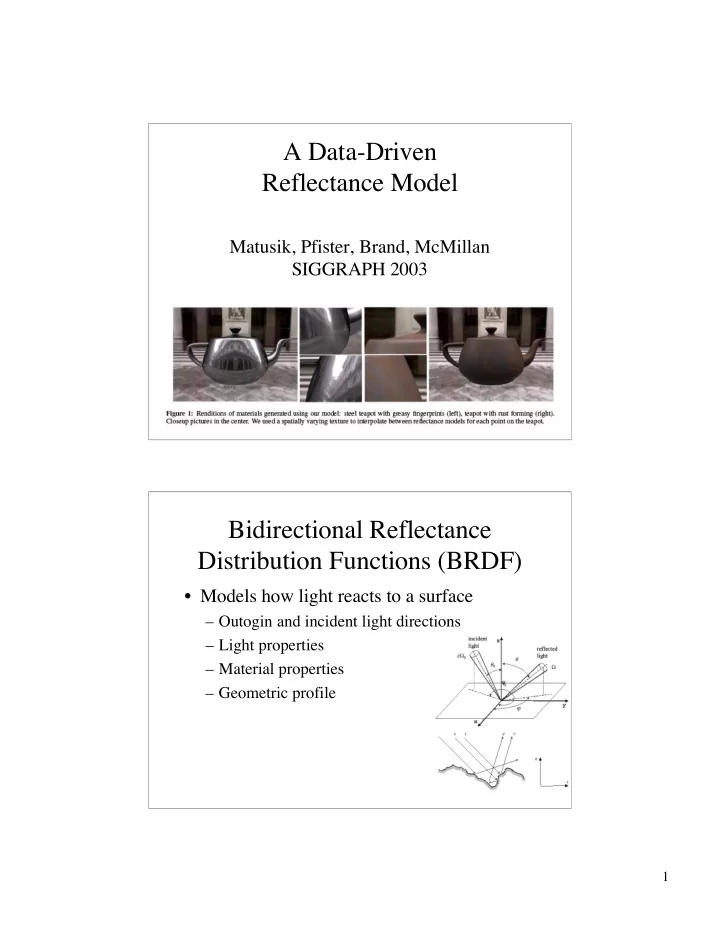

A Data-Driven Reflectance Model Matusik, Pfister, Brand, McMillan SIGGRAPH 2003 Bidirectional Reflectance Distribution Functions (BRDF) • Models how light reacts to a surface – Outogin and incident light directions – Light properties – Material properties – Geometric profile 1
Phong BRDF 2
A barren field with rough surface Left: backscattering (sun behind observer), note the bright region (hotspot) where all shadows are hidden. Right: forwardscattering (sun opposite observer), note the specular reflection. Photograph by Don Deering. 3
A barren field with rough surface Left: backscattering (sun behind observer), note the bright region (hotspot) where all shadows are hidden. Right: forwardscattering (sun opposite observer), note the specular reflection. Photograph by Don Deering. The paper: “A data-driven reflectance model” • Acquire dense set of data – Index into this table • Use lots of materials 4
Doesn’t work on – Models with subsurface scattering • (skin, glass, water) – Anisotropy (cd, christmas ornament) – Non-homogeneous materials Isotropic Anisotropic Anisotropic Homogeneous Homogeneous Inhomogeneous Transparent Transparent Transparent http://hawk.ise.chuo-u.ac.jp/makino/CG/mirage/ 5
Capturing BRDF 6
Making Novel materials • User Interface with 16 different traits – Redness – Roughness – Silverness – Greenness – Gold-like – Blueness – Fabric-like – Specularness – Acrylic-like – Diffuseness – Greasiness – Glossiness – Duesiness – Metallic-like – Rubber-like – Plastic-like 7
Increase Glossiness applied to YellowDiffusePaint BRDF 8
More information • http://www.cs.princeton.edu/~smr/cs348c-97/surveypaper.html 9
Slide Credits • Images from – geography.bu.edu/brdf/ brdfexpl.html 10
Recommend
More recommend